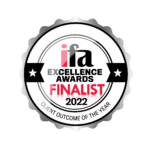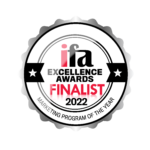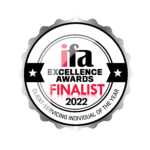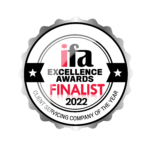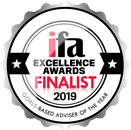Sarina Lea Cowle is an accredited practitioner specialising in commercial law, wills and estates and workplace relations at Sarina L Cowle & Associates based in Melbourne. Previously, Sarina was a member of the business network international and was also a specialist at Premier Wills. Now owning her own business and coupled with over 30 years of experience, she looks into the 7 most common mistakes in wills and estate planning.
If you would like to contact Sarina Cowle, her details are:
Email: scowle@slclaw.com.au
Mobile Number: 0407 697 802
Website: SLC Law
7 Common Mistakes in Will and Estate Planning- Sarina Cowle
Having a goal, via a will, is important for the orderly passing of assets to the next generation. This includes charities and could protect the relevant family. It is important to state formally and legally, a person’s final wishes.
Some people believe that going against wills are not worth making. However, if someone does not record their own wishes then there is no evidence of what the will-maker thought was reasonable or wanted.
As such, the following points may help avoid some of the common errors.
-
Consider Updating Regularly
A person regularly should consider updating their will. Particularly when major life events occur (eg. marriage, births, death of family members, divorce) and where financial affairs become more complicated (for example, the addition of trusts, companies, businesses and super funds).
Failure to consider the impact of any big changes could result in unintended gifts and inheritances. This could open up the estate to challenges and extra costs, possibly even thousands of dollars in legal costs!
A person may not need changes to a will that is well-drawn and can keep in mind some of these changes which is important to consider.
-
Remember to Consider TAX!
Inheritances are generally not taxable in Australia. However, there are “taxes” on the issuing of superannuation entitlements to non-dependants (eg. adult children). This includes important capital gains tax issues to think about.
Well-thought-out estate plans can decrease tax and increase the payouts to beneficiaries.
In the handling of estates, there are timelines to consider that greatly affect potential capital gains tax issues. An experienced lawyer and accountant will be able to help.
-
Remember to Appoint an Executor You Can Trust
An executor will be the party who handles your estate, therefore as a will-maker, you should choose wisely.
There are legal protections for beneficiaries against unskillful executors, however, a party who has the skills and one whom a will-maker can trust is always the best choice.
-
Will Kits Are OK – If You Sign and Complete Them Correctly
Will kits that you pay for are generally well written. However, in fact, a lot remains in a drawer unsigned or incomplete.
Requirements for wills signatures are very fixed and are often wrong. Following the law, there are ways to use a will that is not correctly signed, but again, a lot of extra costs is normally expected. Some poorly signed wills may require a Court application to process.
-
Include All of the Assets
Many people fail to issue all of their estate, whatever that might be at the correct time. It is important to name specific gifts of property, for example, a car or house or painting AND to issue any remainder of the estate. Normally the “residue” is the remainder of the estate. If these named gifts of major assets are sold during the will-makers lifetime, it would be problematic as it could leave a planned beneficiary with nothing!
-
Consider Beneficiaries Needs With Care
Some beneficiaries can profit from special trust requirements or Special Disability Trusts under Services Australia Rules. Others may have a legal disability and legal exposure like bankruptcy or because they are in risky occupations, for example, professionals and people who run their own businesses.
Some will-makers want to gift to beneficiaries who have a hard time with money or relationships or may be bankrupt. A well-drafted will can protect family assets from wastage and give protection to the family inheritance.
-
Superannuation and Assets Outside of the Will
Some will-makers forget that their companies and trusts may not form part of their grounds for issuing. Superannuation is a great example. It is controlled by completely different rules and mainly the trust deed of the linked super funds. Assets in a trust are passed down in the trust deed, and the amount is most likely besides the point.
It is important to guide the correct issuing of superannuation so there is no doubling up. This includes unfair and surprising treatment of beneficiaries or situations of excess tax.
Sarina Lea Cowle
The team at Endorphin Wealth are passionate about helping people achieve their life goals with great financial planning. We are not licensed or owned by big banks and financial institutions. The advice and wealth management we provide is always in our client’s best interests. We have the advantage of being able to access a range of products from different providers. This would be tailored to our client’s goals. We have offices located in Sydney and Melbourne, where you can find a financial advisor that is suitable for you.
For an obligation-free conversation about your financial future, please contact us on 03 9190 8964 or at advice@endorphinwealth.com.au




